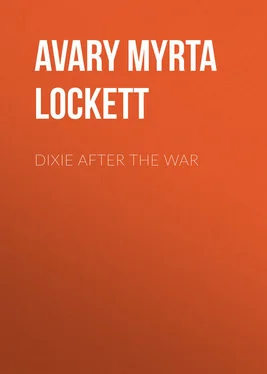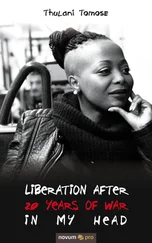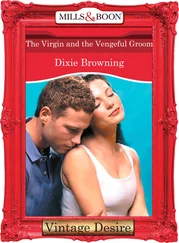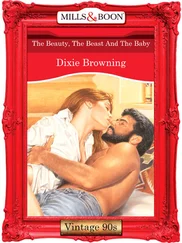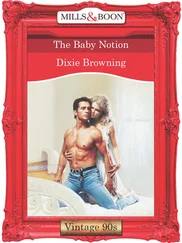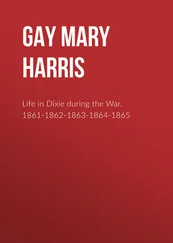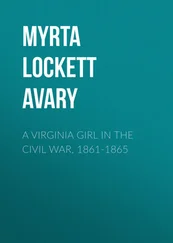Myrta Avary - Dixie After the War
Здесь есть возможность читать онлайн «Myrta Avary - Dixie After the War» — ознакомительный отрывок электронной книги совершенно бесплатно, а после прочтения отрывка купить полную версию. В некоторых случаях можно слушать аудио, скачать через торрент в формате fb2 и присутствует краткое содержание. ISBN: , Жанр: foreign_antique, foreign_prose, Историческая проза, на английском языке. Описание произведения, (предисловие) а так же отзывы посетителей доступны на портале библиотеки ЛибКат.
- Название:Dixie After the War
- Автор:
- Жанр:
- Год:неизвестен
- ISBN:http://www.gutenberg.org/ebooks/41730
- Рейтинг книги:5 / 5. Голосов: 1
-
Избранное:Добавить в избранное
- Отзывы:
-
Ваша оценка:
- 100
- 1
- 2
- 3
- 4
- 5
Dixie After the War: краткое содержание, описание и аннотация
Предлагаем к чтению аннотацию, описание, краткое содержание или предисловие (зависит от того, что написал сам автор книги «Dixie After the War»). Если вы не нашли необходимую информацию о книге — напишите в комментариях, мы постараемся отыскать её.
Dixie After the War — читать онлайн ознакомительный отрывок
Ниже представлен текст книги, разбитый по страницам. Система сохранения места последней прочитанной страницы, позволяет с удобством читать онлайн бесплатно книгу «Dixie After the War», без необходимости каждый раз заново искать на чём Вы остановились. Поставьте закладку, и сможете в любой момент перейти на страницу, на которой закончили чтение.
Интервал:
Закладка:
A Northern newspaper man (who related this story of himself) recognizing that it was his business to make news as well as dispense it, saw some negroes at work near the landing where an officer was having débris removed, and other negroes idling. He said to this one and to that: “Do you know that man?” pointing to the tall, lank man who had just stepped ashore.
“Who is dat man, marster?”
“Call no man marster. That man set you free. That is Abraham Lincoln. Now is your time to shout. Can’t you sing, ‘God bless you, Father Abraham!’”
That started the ball rolling. The news spread like wild-fire. Mercurial blacks, already excited to fever-heat, collected about Mr. Lincoln, impeding his progress, kneeling to him, hailing him as “Saviour!” and “My Jesus!” They sang, shouted, danced. One woman jumped up and down, shrieking: “I’m free! I’m free! I’m free till I’m fool!” Some went into the regular Voodoo ecstasy, leaping, whirling, stamping, until their clothes were half torn off. Mr. Lincoln made a speech, in which he said:
“My poor friends, you are free – free as air. But you must try to deserve this priceless boon. Let the world see that you merit it by your good works. Don’t let your joy carry you into excesses. Obey God’s commandments and thank Him for giving you liberty, for to Him you owe all things. There, now, let me pass on. I have little time here and much to do. I want to go to the Capitol. Let me pass on.”
Henry J. Raymond speaks of the President as taking his hat off and bowing to an old negro man who knelt and kissed his hand, and adds: “That bow upset the forms, laws and customs of centuries; it was a death-shock to chivalry, a mortal wound to caste. Recognize a nigger? Faugh!” Which proves that Mr. Raymond did not know or wilfully misrepresented a people who could not make reply. Northern visitors to the South may yet see refutation in old sections where new ways have not corrupted ancient courtesy, and where whites and blacks interchange cordial and respectful salutations, though they may be perfect strangers to each other, when passing on the road. If they are not strangers, greeting is usually more than respectful and cordial; it is full of neighbourly and affectionate interest in each other and each other’s folks.
The memories of the living, even of Federal officers near President Lincoln, bear varied versions of his visit. General Shepley relates that he was greatly surprised when he saw the crowd in the middle of the street, President Lincoln and little Tad leading, and that Mr. Lincoln called out:
“Hullo, General! Is that you? I’m walking around looking for Military Headquarters.”
General Shepley conducted him to our White House, where President Lincoln wearily sank into a chair, which happened to be that President Davis was wont to occupy while writing his letters, a task suffering frequent interruption from some one or other of his children, who had a way of stealing in upon him at any and all times to claim a caress.
Upon Mr. Lincoln’s arrival, or possibly in advance, when it was understood that he would come up from City Point, there was discussion among our citizens as to how he should be received – that is, so far as our attitude toward him was concerned. There were several ways of looking at the problem. Our armies were still in the field, and all sorts of rumors were afloat, some accrediting them with victories.
A called meeting was held under the leadership of Judge Campbell and Judge Thomas, who, later, with General Joseph Anderson and others, waited on Mr. Lincoln, to whom they made peace propositions involving disbandment of our armies; withdrawal of our soldiers from the field, and reëstablishment of state governments under the Union, Virginia inaugurating this course by example and influence.
Mr. Lincoln had said in proclamation, the Southern States “can have peace any time by simply laying down their arms and submitting to the authority of the Union.” It was inconceivable to many how we could ever want to be in the Union again. But wise ones said: “Our position is to be that of conquered provinces voiceless in the administration of our own affairs, or of States with some power, at least, of self-government.” Then, there was the dread spectre of confiscation, proscription, the scaffold.
Judge Campbell and Judge Thomas reported: “The movement for the restoration of the Union is highly gratifying to Mr. Lincoln; he will give it full sympathy and coöperation.”
“You people will all come back now,” Mr. Lincoln had said to Judge Thomas, “and we shall have old Virginia home again.”
Many had small faith in these professions of amity, and said so. “Lincoln is the man who called out the troops and precipitated war,” was bitterly objected, “and we do not forget Hampton Roads.”
A few built hopes on belief that Mr. Lincoln had long been eager to harmonize the sections. Leader of these was Judge John A. Campbell, ex-Associate Justice of the Supreme Court of the United States, and ex-Assistant Secretary of War of the expiring Confederacy. He had served with Mr. Hunter and Mr. Stephens on the Hampton Roads Peace Commission, knew Mr. Lincoln well, had high regard for him and faith in his earnest desire for genuine reconciliation between North and South. When the Confederate Government left the city, he remained, meaning to try to make peace, Mr. Davis, it is said, knowing his purpose and consenting, but having no hope of its success.
Only the Christmas before, when peace sentiments that led to the Hampton Roads Conference were in the air, striking illustrations in Northern journals reflected Northern sentiment. One big cartoon of a Christmas dinner in the Capitol at Washington, revealed Mr. Lincoln holding wide the doors, and the seceded States returning to the family love feast. Olive branches, the “Prodigal’s Return,” and nice little mottoes like “Come Home, Our Erring Sisters, Come!” were neatly displayed around the margin. Fatted calves were not to be despised by a starving people; but the less said about the pious influences of the “Prodigal’s Return” the better. That Hampton Roads Conference (February, 1865) has always been a sore spot. In spite of the commissioners’ statements that Mr. Lincoln’s only terms were “unconditional surrender,” many people blamed Mr. Davis for the failure of the peace movement; others said he was pusillanimous and a traitor for sanctioning overtures that had to be made, by Lincoln’s requirements, “informally,” and, as it were, by stealth.
“We must forget dead issues,” our pacificators urged. “We have to face the present. The stand Mr. Lincoln has taken all along, that the Union is indissoluble and that a State can not get out of it however much she tries, is as fortunate for us now as it was unlucky once.”
“In or out, what matters it if Yankees rule over us!” others declared.
“Mr. Lincoln is not in favor of outsiders holding official reins in the South,” comforters responded. “He has committed himself on that point to Governor Hahn in Louisiana. When Judge Thomas suggested that he establish Governor Pierpont here, Mr. Lincoln asked straightway, ‘Where is Extra Billy?’ He struck the table with his fist, exclaiming, ‘By Jove! I want that old game-cock back here!’”
When in 1862-3 West Virginia seceded from Virginia and was received into the bosom of the Union, a few “loyal” counties which did not go with her, elected Francis H. Pierpont Governor of the old State. At the head of sixteen legislators, he posed at Alexandria as Virginia’s Executive, Mr. Lincoln and the Federal Congress recognizing him. Our real governor was the doughty warrior, William Smith, nick-named “Extra Billy” before the war, when he was always asking Congress for extra appropriations for an ever-lengthening stage-coach and mail-route line, which was a great Government enterprise under his fostering hand.
Читать дальшеИнтервал:
Закладка:
Похожие книги на «Dixie After the War»
Представляем Вашему вниманию похожие книги на «Dixie After the War» списком для выбора. Мы отобрали схожую по названию и смыслу литературу в надежде предоставить читателям больше вариантов отыскать новые, интересные, ещё непрочитанные произведения.
Обсуждение, отзывы о книге «Dixie After the War» и просто собственные мнения читателей. Оставьте ваши комментарии, напишите, что Вы думаете о произведении, его смысле или главных героях. Укажите что конкретно понравилось, а что нет, и почему Вы так считаете.
